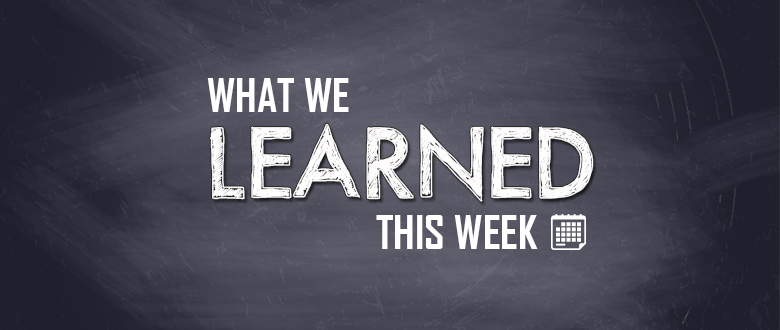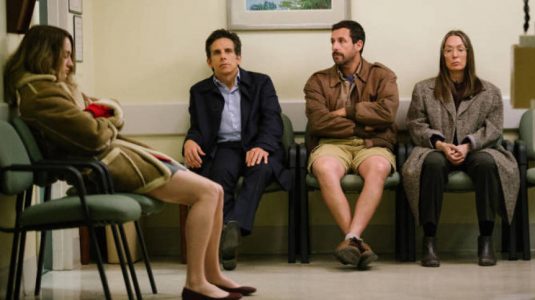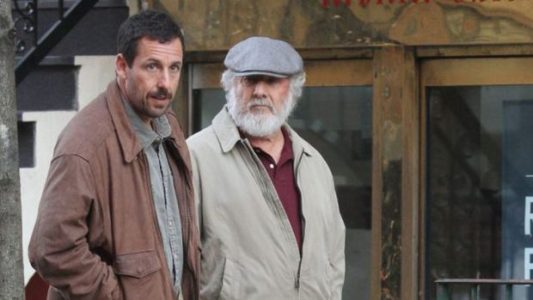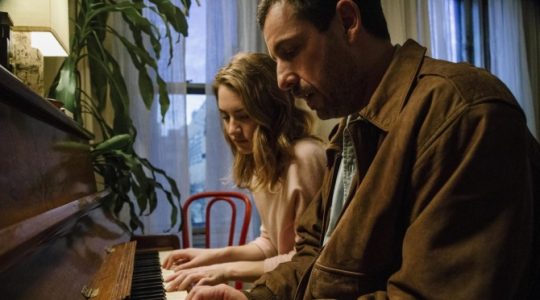
LESSON #1: SCOUTING THE RIGHT TALENT IS KEY TO MARVEL’S SUCCESS— How does this low-risk MCU blueprint keep coming up with winners? One way is by scouting comedic talent in front of and behind the camera. Look first at the casting of Marvel’s core leads: Robert Downey, Jr., Chris Evans, Chris Pratt, Paul Rudd, Benedict Cumberbatch, and, in Thor: Ragnarok‘s case, Chris Hemsworth. Each of them (follow the links) bring an easily-activated range of humor to not take themselves so seriously. If you’re shooting for overall levity, you call on the nimble and agile. The same search for farce can be said for many of Marvel’s directorial choices: Jon Favreau, Joss Whedon, Anthony and Joe Russo, James Gunn, and Peyton Reed. All have witty and wisecracking credits on their resumes. Add director Taika Waititi’s name to that list. The peppy New Zealander behind Hunt for the Wilder People and What We Do in the Shadows merges his wholesome storytelling sensibilities with a frisky and playful side of sarcasm to sharpen the camp of the comic book content of Thor: Ragnarok.
LESSON #2: NETFLIX CAN STILL BE A BIT OF A BALLHOG— Jeff Huston of “I Can’t Unsee That Movie” has an excellent editorial piece recently talking about the day-and-date release strategy of Netflix. Thanks to their deep pockets to win some distribution bids on prominent international film festival performers like The Meyerowitz Stories, First They Killed My Father, and Our Souls at Night, high caliber independent films are available on their streaming service at the same time as a soft and limited theatrical release. The article calls into question how this practice actually does a disservice to the theater end of things and I happen to agree, though I celebrate Netflix plenty (see next lesson) for getting the “gets.” While it’s nice that the arthouse theater scene is being filled with something, the Netflix availability dramatically shortens any helpful effect of attendance the arthouse could really use. There’s got to be a middle stagger of compromise in there. Give the arthouse 4-8 weeks of exclusivity and then Netflix gets it forever, something to that effect where both benefit.
LESSON #3: NETFLIX IS ALL-IN ON ORIGINAL PROGRAMMING— We’ve been seeing Netflix’s not-so-quiet surge all year with their self-financed original feature film offerings and have been amazed. They keep getting bigger, especially with Will Smith’s Bright around the corner. Now the ambition and push have a target number and it’s bigger than we thought. Recently, the streaming giant said their 2018 goal is 80 original films. That is an astounding number that runs circles around Hollywood studios that maybe put out a quarter of that into the multiplexes. Love them or hate them, Netflix is quadrupling down on being a big-time player.
LESSON #4: DEMAND-BASED PRICING IS GOING TO BE AN INTERESTING EXPERIMENT— We filmgoers don’t often see the business dealings happening behind the curtain and multiplex doors. For a taste of it, read the strict details Disney is placing on theater chains for the upcoming Star Wars: The Last Jedi and you’ll get an idea of the bitter competition for the almighty dollar. All we see is ticket prices going up and wondering why while we shake our heads and still open up our wallets. In an effort to earn a little extra, the Regal Cinemas chain recently announced a trial of demand-based/surge pricing where the hits will cost more than the flops on your receipt. Seeing the business end of that Last Jedi example, I get theaters trying to squeeze, but one has to wonder if such practice will work. I don’t like its chances. All I see are movie studios then asking for a bigger cut on top.
 DON SHANAHAN is a Chicago-based film critic writing on his website Every Movie Has a Lesson. As an elementary educator by day, Don writes his movie reviews with life lessons in mind, from the serious to the farcical. As a contributor here on Feelin’ Film, he’s going to expand those lessons to current movie news and trends. Find “Every Movie Has a Lesson” on Facebook, Twitter, Medium, and Creators Media.
DON SHANAHAN is a Chicago-based film critic writing on his website Every Movie Has a Lesson. As an elementary educator by day, Don writes his movie reviews with life lessons in mind, from the serious to the farcical. As a contributor here on Feelin’ Film, he’s going to expand those lessons to current movie news and trends. Find “Every Movie Has a Lesson” on Facebook, Twitter, Medium, and Creators Media.






